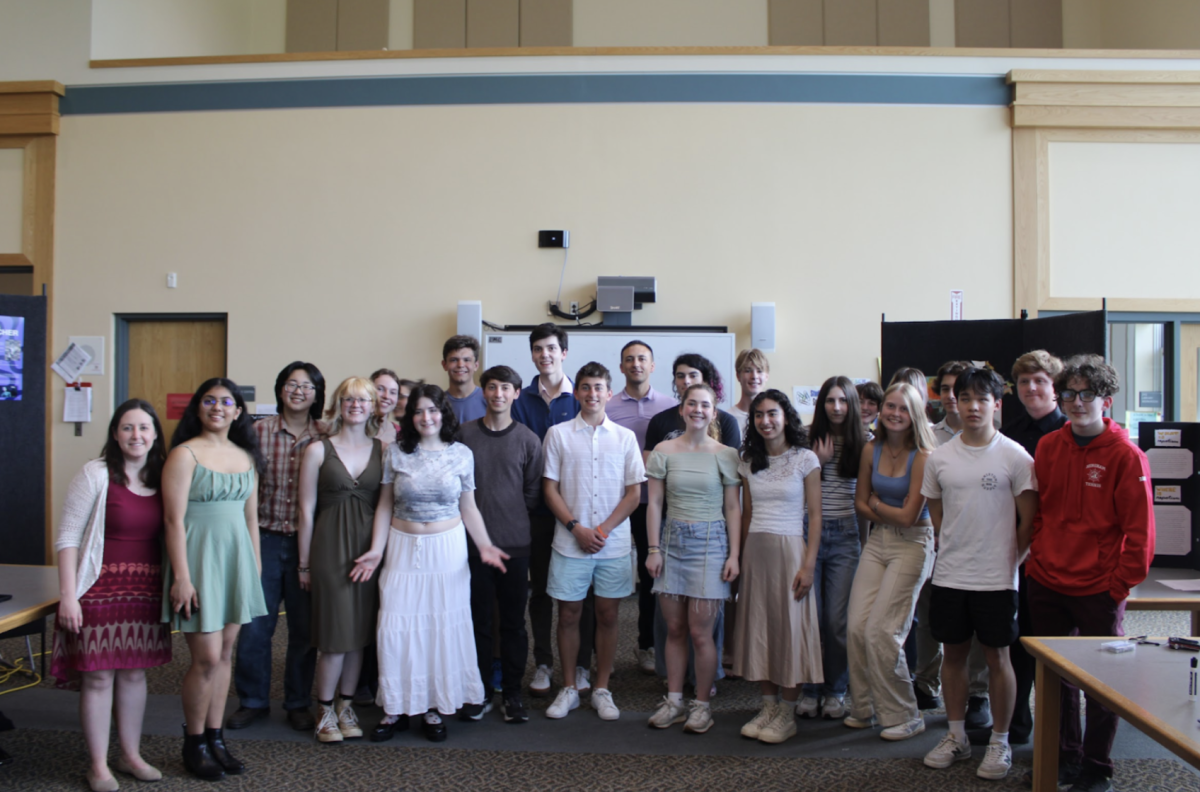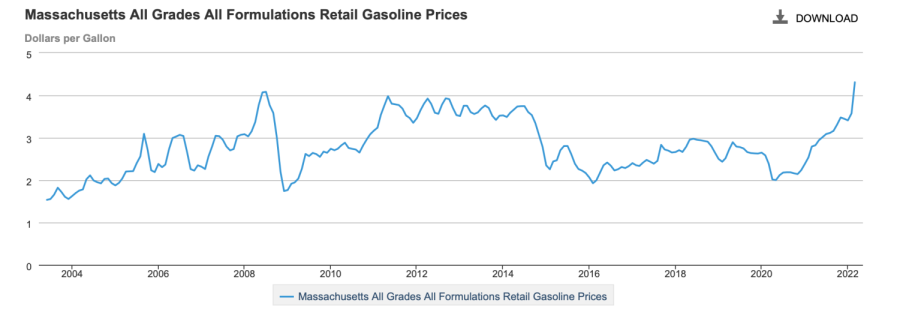The Cost of Driving: Gas Prices at an All-Time High
US Energy Information Administration
A chart of gas prices over the years reveals a dramatic spike this year, rising above even the 2008 cost.
April 19, 2022
Driving around town, the $4.30 gas prices prove a far cry from the sub $2 prices of pandemic-era gas. With prices more than doubling in the past year, citizens sink more money into daily transportation than ever before. Even students driving to school and around town have felt the effects. Senior Tyler O’Connor reveals, “I try to drive less so I don’t have to spend more money on gas since it’s so expensive now.” With most people relying on some sort of car transportation everyday, Tyler’s sentiment has been echoed around the school, town, and country.
One question you may be asking is why? How were the rates so low just a year ago, and now the highest in history (USAToday)? Part of the problem stems all the way back to the pandemic. With the world shut down, many companies and countries, especially smaller scale operations with smaller export levels, hugely decreased their production rates in accordance with the dropping demand (CNN). As transportation and daily activity has returned to a more normal scene, these companies have been slowly revamping and reopening their production while the world remains mostly dependent on the big giants of the oil industry. This system only proved effective and acceptable, however, until the Russian invasion of Ukraine earlier this year. With the violent attack sending political positions and alliances into a frenzy, many countries including the US and UK have imposed sanctions on Russian trade, including the oil and gas resources of the region. While CBS reports that the US receives less than 10% of its oil and gas directly from Russia, the lack of circulation of the products in the global market has caused an international shortage and increase in price (CBSnews). Although the US may not directly import from Russia, the widespread sanctions and trade blocks have resulted in extreme consequences across global commerce.
In hopes of mitigating the drastic price shift, some states have passed bills allowing a temporary suspension of the federal gas tax in an attempt to provide some relief during this fuel crisis. On March 24, however, the Massachusetts Senate voted to uphold the gas tax rather than engender a temporary suspension (WickedLocal). As prices have already begun to level out, some believed in the natural restabilizing while others feared the suspension would cause separate problems such as decreasing tax revenue used for public projects.
While the inflated state of gas prices may be an irritating inconvenience, the still recovering post-pandemic industry and shock of the Russia-Ukraine conflict reflect a greater issue and cause behind the quickly rising meter at the local gas station. Even within our own student community, this inflation has engendered an introspection and reprioritization as described by senior Cara Chiappinelli in her statement: “While the higher gas prices are definitely a bit annoying, I think they have taught me to be a bit more conscious of how much I drive and how much gas I can waste.” Although the thought of dropping $70 on a tank of gas burns a hole in your wallet, it is important to understand the global implications of this seemingly mundane chore.

































